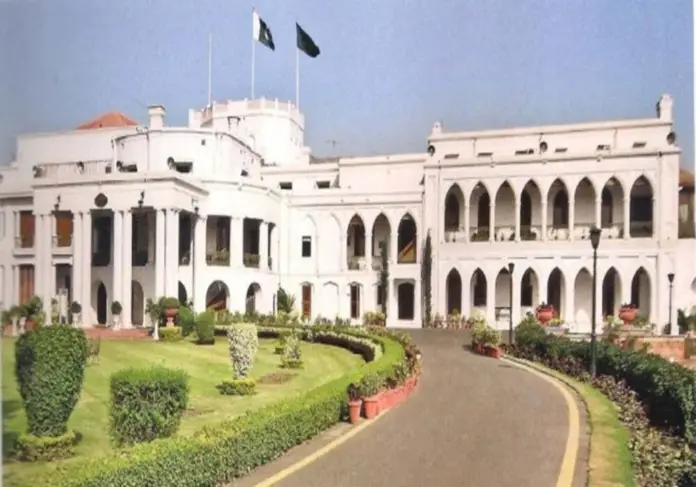The former prime minister of Pakistan Zulfiqar Ali Bhutto had tried to run the private sector through his public servants. His experiment of nationalization badly failed. But, later, successive governments had to not only surrender the private entrepreneurs but also privatize state-owned assets.
Why did that all happen and who was responsible for this huge paradigm shift? Besides many immature political decisions, the state machinery cannot keep itself aloof from this big loss to the country. The politicians that ruled over the country had flourished their businesses but the state-run corporations either have to be handed over to private owners or face billions of rupees of deficits.
Pakistan Steel, Pakistan International Airlines, Pakistan Railways, and Pakistan Post, are some of the famous corporations that caused hundreds of billions of rupees losses to the kitty. Usually, senior-most civil servants of grade 22 head these corporations but there is no question of responsibility. One after the other joins, serves, loses and leaves. That’s it. No public forum, court or even departmental higher-ups ever held anyone responsible for this unbearable loss. All the arrangement made to meet loss was arranging more loans from donors.
At present, Pakistan faces socio-political and economic crises. There would be multiple reasons behind them but one major factor will be the role of civil service. Pakistan like many other developing nations has relied much on traditional bureaucracy to formulate and implement the public policies.
The officers selected through highly competitive examinations, as a worldwide practice, are greatly incentivized financially. Other facilities like residence official conveyance, ministerial and serving staff and much more are in addition. It is even a matter of concern for countries including the United States and the United Kingdom that officers can’t deliver at par with the expectations of the taxpayers. Pakistan is no exception.
In third-world countries, including Pakistan, highly paid officers enjoy permanent and secure jobs. However, when it comes to performance, one realizes that it was not even the needful. In many cases, people raise their fingers at the recruiting agencies, including Public Service commissions, for hiring inefficient, incompetent, and nonfunctioning officers.
This correspondent who had been reporting on bureaucracy for over a decade realized that only compensation and other such incentives don’t force the officers to deliver. There is one very important thing that is usually ignored. It is the autonomy of the officers. The consecutive political regimes have learned to have an authoritarian approach that undermined the role of officers. Right from the chief ministers of the provinces to the Prime Minister all the chief executives perform alike. Concentrating all the powers in their offices, they forget they damage the system to the level that there is no remedy. When there is no optimal level of independence for better service delivery as is the case in Pakistan and its federating units there is no output.
To the surprise of many, the chief executives use all the powers of the cabinet ignoring and undermining the role of state machinery in the disposal of multiple assignments. To conclude, one can rightly sum up that there is a dire need to bring reforms in the civil services. There would be institutional constraints and resistance from the in-place regulatory mechanism. However, without reforming the services right from hiring to authorizing them there is no question of service delivery.
Imran Khan’s pledge to bring civil service reforms was a good initiative but its prime focus was procedural and limited to amending the rules of business only. There was little how to enhance performance and service delivery. The compulsory retirement policy, a good one, was introduced and implemented for the under-performers. It could not sustain as Khan’s government changed. All the officers who were under trial under the new policy managed their promotions.
Though former PM Khan time and again pledged to have no political interference in administrative affairs under his command, the same had crossed all limits. Political and monetary meddling in the administration had become allegedly an integral part of the governance in Punjab.
After the change of regime, the new government reversed all the reforms the outgoing government had introduced. The Directory Retirement Policy, for example, was one of the best of its kind but it was repealed altogether. There were no criteria to promote officers to grade 22. Officers were and are promoted on the personal whims of the person at the helm of affairs. PM Khan had tried to personally look into the issue of the promotions and give recommendations on a merit cum fitness basis. But what happened after the change of guards in Islamabad? Everything was gone upside down, as many allege. Those officers of great 21 who were being shown the door became the high achievers to the surprise of all the dutiful, honest and competent lot of officers.
Pakistan has become a country where everything, rule of law and every institution has been politicized. The media outlets focus and prioritize airing the political stuff to the extent that there is very little need to cover any other aspect of society. Health, education, research and good governance are degrees down.
The poor nation has been providing the necessary resources to its state machinery to run the affairs but the political elite and other ruling people have with the passage of time concentrated more discretionary powers that inversely affected the bureaucratic performance.
It would be crucial after empowering them, assigning duties to officers, holding them responsible for the outcomes and then evaluating their performance. If they delivered, there should be more incentives otherwise; there should be no place for them in the power corridors. The unceremonious exit from service should be the fate of such officers. Why has the incumbent political setup withdrawn the much-needed directory retirement policy? Even the Islamabad High Court had marked it as the right one. It was formulated during the former government. Is it a reason or any other one? The taxpayers want to know.






